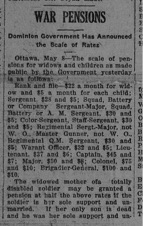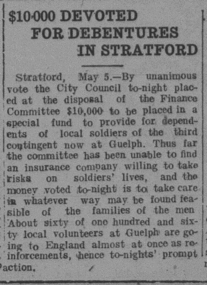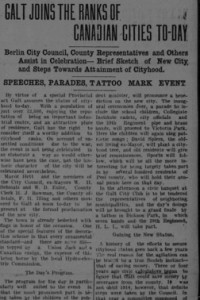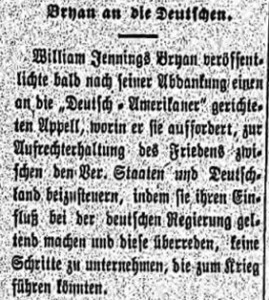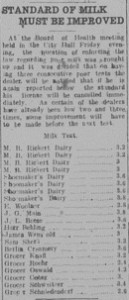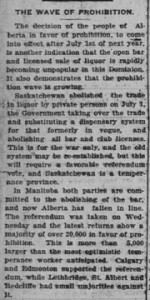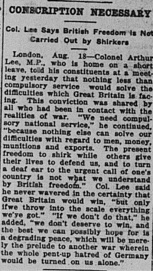Waterloo Region citizens cast their votes for their respective council positions at the start of December 1914. Towns such as Wellesley did not vote as their council leader A. B. Robertson was re-elected by acclamation along with the Waterloo council, which re-elected its respective council leaders. This was one of the few mentions of local elections, as the local war industry and news from the frontlines dominated the newspapers of the region. Political differences were sidelined to avoid distractions and maintain a level of unity in the Waterloo Region. Additionally, the low level of political strife in the region was in accordance with the political truce proclaimed and observed by the Federal Government.
(“Elections in the Townships,” Elmira Signet, 17 December 1914)
